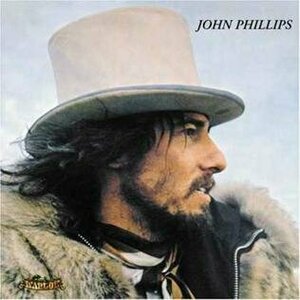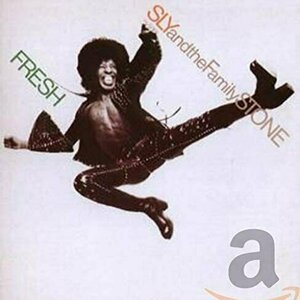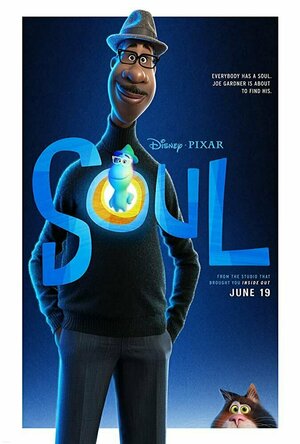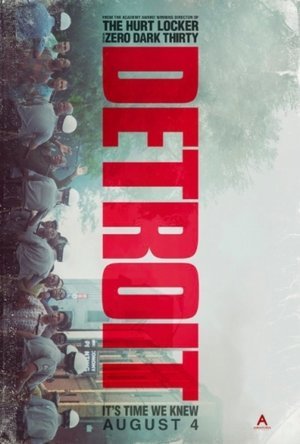Search
Search results
Johnny Marr recommended Bert Jansch by Bert Jansch in Music (curated)
Bobby Gillespie recommended John Phillips (John the Wolfking of L.A.) by John Phillips in Music (curated)
Brian Eno recommended Fresh by Sly & The Family Stone in Music (curated)
Johnny Marr recommended track Philadelphia by Magazine in The Correct Use Of Soap by Magazine in Music (curated)
Graham Massey recommended Low by David Bowie in Music (curated)
James Dean Bradfield recommended Alice In Chains by Alice In Chains in Music (curated)
Lenard (726 KP) rated Soul (2020) in Movies
Dec 26, 2020
There is a saying that even though you can't achieve greatness you can still inspire someone else to be great. Joe Gardner is a sometime jazz pianist who works as a part time middle school band teacher. On the day the principal hires him as a full-time teacher with all the benefits, Joe is invited to join a jazz quartet for their nightly club gigs. In his dazed excitement, he falls down an open manhole (the city will face a major lawsuit for that). His soul is transported onto the conveyor belt for the Great Beyond, but Joe escapes into the Great Before. There, in order to stall his forever death, he becomes a mentor to a "new" soul so that the nonbinary entity named 22 finds a spark to live. 22 has been mentored by all the greats from Archimedes to Copernicus to Mother Teresa never finding a reason to exist. That is, until a trip to the land of the lost souls ends with both Joe's soul and 22 inside corporeal beings. Joe teaches 22 that life has value whether it is a pursuit of music, a dream deferred like a raisin in the sun, or observing a leaf falling from a tree. In fact, Joe has influenced the lives of many of his students, like Curley, a jazz drummer in the Dorothea William Quartet, or current student Sonia, a master trombonist, who he privately teaches outside of school. While some people can see his dreams may not be his meal ticket, Joe will always be a mentor to other struggling musicians who may one day be successful.
On the technical aspects of the film, there is a lot to praise. While a Michael Giacchino score may have worked, the score by Trent Reznor and Atticus Ross counterposes the jazz score throughout. Music soothes all souls. The animation is masterful as usual. The "Terry" sequence and some of the character designs in the afterlife will influence future animators much like Joe's students.
On the technical aspects of the film, there is a lot to praise. While a Michael Giacchino score may have worked, the score by Trent Reznor and Atticus Ross counterposes the jazz score throughout. Music soothes all souls. The animation is masterful as usual. The "Terry" sequence and some of the character designs in the afterlife will influence future animators much like Joe's students.
Gareth von Kallenbach (980 KP) rated Detroit (2017) in Movies
Jul 11, 2019
“Detroit” tells the story of the Algiers Motel incident that took place during the massive 12th Street Riot in 1967 Detroit, Michigan. Director Kathryn Bigelow and writer Mark Boal have created a stunning film that will suck the audience into a historical moment of horror.
The film, based on what is known about true events, takes viewers into a world of absolute terror as the streets of Detroit become a warzone filled with racial hatred and violence. After a police raid, looters took to the streets vandalizing and robbing local storefronts.
Rapidly, the police response grew into extreme reactionary violence and fueled the fire of the riot. The national guard is called in and rather than getting the situation under control, the city devolves into what looks like a warzone in a foreign land.
The film has a great build up and the characters are developed quite well by the time the thick of the plot gets started around the Algiers Motel Incident, an event that resulted in the deaths of three black men and the torture of nine other people.
The entire cast is amazing. Heart strings are pulled by the characters portraying Larry Reed (Algee Smith) and Fred (Jacob Latimore), two musicians that are caught in a horrific nightmare simply by being in the wrong place at the wrong time.
John Boyega also delivers a heart wrenching performance as Melvin Dismukes, a black man who tries at great length to stay safe and keep the peace. His character is portrayed as caught in the cross fires of morality and necessity.
Will Poulter plays a real-life villain as blood thirsty and racist police officer, Phillip Krauss. His portrayal of Krauss is terrifying.
The film as a film, is gripping, an amazing cinematic feat. But, the story is painful to watch. Scarier than any horror film, “Detroit” brings to light one of the darkest sides of the human species and a bloody stain on American history.
The film, based on what is known about true events, takes viewers into a world of absolute terror as the streets of Detroit become a warzone filled with racial hatred and violence. After a police raid, looters took to the streets vandalizing and robbing local storefronts.
Rapidly, the police response grew into extreme reactionary violence and fueled the fire of the riot. The national guard is called in and rather than getting the situation under control, the city devolves into what looks like a warzone in a foreign land.
The film has a great build up and the characters are developed quite well by the time the thick of the plot gets started around the Algiers Motel Incident, an event that resulted in the deaths of three black men and the torture of nine other people.
The entire cast is amazing. Heart strings are pulled by the characters portraying Larry Reed (Algee Smith) and Fred (Jacob Latimore), two musicians that are caught in a horrific nightmare simply by being in the wrong place at the wrong time.
John Boyega also delivers a heart wrenching performance as Melvin Dismukes, a black man who tries at great length to stay safe and keep the peace. His character is portrayed as caught in the cross fires of morality and necessity.
Will Poulter plays a real-life villain as blood thirsty and racist police officer, Phillip Krauss. His portrayal of Krauss is terrifying.
The film as a film, is gripping, an amazing cinematic feat. But, the story is painful to watch. Scarier than any horror film, “Detroit” brings to light one of the darkest sides of the human species and a bloody stain on American history.

MIxpads-Music mixer & dj sampler free app
Music and Utilities
App
Mixpads - A simple way to create your own electronic music and groovy remixes Key Features: • 30...

We Heart It - Fashion, quotes
Social Networking and Photo & Video
App
WHI is for getting lost in what you love. Find and save quotes, fashion inspiration, photography,...







